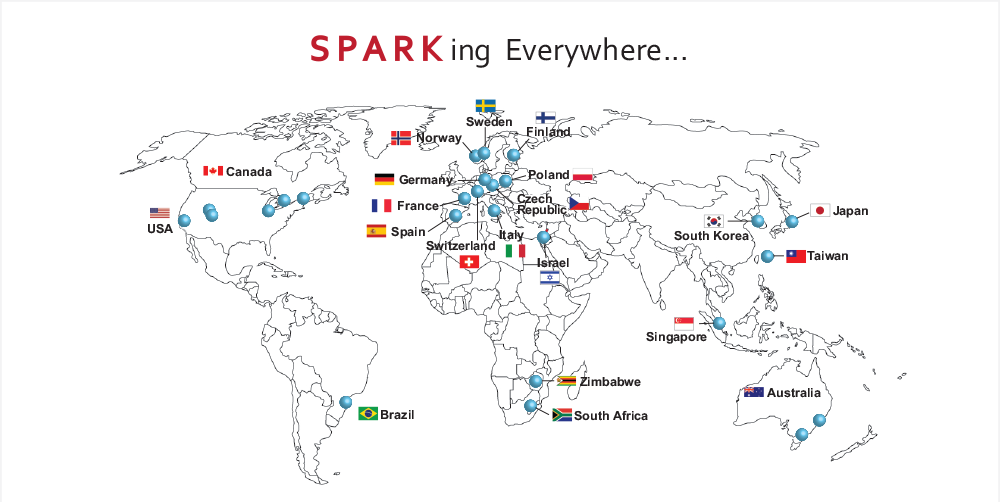Bridging The Gap

A SPARK advisor’s view on how the program can address an acute global health issue like the current COVID-19 pandemic.
March 5, 2020
As the COVID-19 pandemic grows, as groups frantically search for therapeutics, fast-track testing of vaccines and therapies, and as the public panics, the situation prompts a major question: how can we be better prepared for next time?
SPARK advisor Steve Schow has a proposal for how the program can address an acute global health issue like the current COVID-19 pandemic.
Schow has been a SPARK advisor for 12 years. He is an adjunct professor of chemical and systems biology at Stanford and has over 35 years of pharmaceutical, biotech and agrichemical industrial R&D experience.
The Problem
Schow notes that although SPARK has funded some very interesting antiviral vaccine projects, and although “significant Stanford talent with very deep expertise” can work on vaccine creation for emerging viral threats, he observes that “vaccine creation, production and testing is super expensive, slow to unfold, subject to antigen drift/loss and generates significant safety concerns.”
“Vaccine invention seems to be tricky even when budgets are unbounded.” Schow refers to viruses such as the highly lethal Marburg filovirus and hemorrhagic viruses like Rift Valley fever and Lassa fever, which still lack vaccines. “We don’t even have a vaccine for West Nile virus despite its annual threat to the general populous.”
“Also, somewhat problematical is the peek-a-boo nature of some viral diseases. SARs emerged in 2002 spreading to 29 countries or 5 continents. Yet by mid-2003, SARs was declared over by WHO. The laboratories targeting SARs vaccines were barely up and running before the crises ended abruptly. MERs popped up and then faded only to become an ongoing minor threat in the Middle East.”
“It is hard to think of a long-term financial commitment to vaccine development when the bug just packs up and leaves Dodge.”
The Solution
Schow suggests that SPARK go beyond SPARK at Stanford and put together a Viral Epidemics Rapid Response Initiative (VERRI), comprising “an infrastructure and loose confederation of academic viral experts within the SPARK community,” that could be quickly initiated at the very beginning of an epidemic.
As part of this effort, Schow proposes that SPARK Global teams create an antiviral-biased compound screening library.
SPARK GLOBAL is a network of over 60 translational programs in 23 countries using SPARK’s model of partnership between academia and industry partners to advance academic discoveries.
According to Schow, SPARK GLOBAL teams should “identify and secure as many of these molecules as feasible to create an antiviral-biased compound screening library for rapid identification of potential antiviral agents, or at least starter molecules, for addressing any fast emerging viral threat to the global population.”
“SPARK teams having an interest in the new virus could access these screening libraries via overnight transit from a repository here at Stanford or one of our other SPARK partners who is committed to this effort.”
“The idea of antiviral screening libraries isn’t new by any stretch of the imagination. Many such screening efforts are now underway around the world. However, we need a long term commitment to rapidly identifying new or old agents that can be deployed against any new viral threat.”
Schow notes there are many antiviral compounds, both synthetic and isolated from natural sources, that have been reported.
“Large pools of potential antiviral compounds are languishing in academic (chemistry) laboratories or are buried in corporate compound libraries from long forgotten antiviral projects, or as a result of some acquisition of a company that once specialized in antivirals or nucleosides in general.” The SPARK VERRI team could solicit compounds, both published and unpublished, from academic labs as well as industrial laboratories, to create the initial antiviral screening library.
Schow also suggests soliciting antiviral companies to participate, such as Gilead. “Others might be interested in supporting this early-stage drug identification effort, as it may well become a wellspring for antiviral candidates to populate their own pipelines.”
“Then compounds could be distributed to SPARK investigators looking for drugs for emerging global viral menaces. With one of these known drugs showing activity against the new problematic bug, SPARK could pull together global partners to clinically test this known drug in patients as quickly as possible.”
Schow thinks “deployment of either broad spectrum or targeted antiviral agents is the fastest and most efficient approach to addressing any rapidly advancing global viral epidemic. Post infection treatment might not be the ideal approach, but if such a drug aborts a possible catastrophic clinical outcome for the patient, then it is good enough.”
Schow warns, “This certainly will not be the last of these infectious disease threats to emerge. We have seen several corona viruses, Ebola, Zika, HIV, Hantavirus and one round of swine flu emerge within in the past 40 years. More are on the way.”
“This isn’t a solution to our immediate problem, but a long-term commitment to combating the next epidemic going forward. It avoids the ad hoc by the seat of the pants reactionary/panicky approach we are seeing with the current epidemic.”
